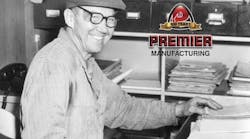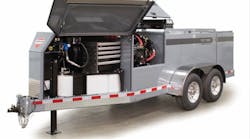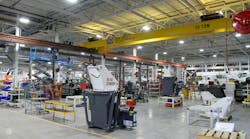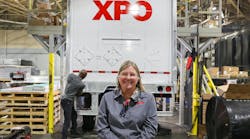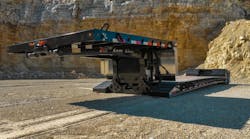Truck manufacturers are facing two primary challenges in the form of total cost of ownership (TCO), which helps them remain competitive in their marketplace, and environmental protection, according to Frank Machatschek, who is responsible for Shell Oil’s cooperation with Daimler Trucks in Europe.
Machatschek spoke to a group of international journalists at Shell’s Technology Centre in Hamburg, Germany.
To help OEMs achieve improved total cost of ownership, Shell works to provide lubricants that can extend drains while maintaining reliability and durability of the engine and its components, all while improving fuel economy, which is a big push everywhere these days, especially so in the U.S. as manufacturers work to meet tightening greenhouse gas emissions standards being phased in between 2014 and 2017 with a second round set to begin in 2018.
“Reducing the friction in the engine is good for the fuel economy of the customer, but also good for the environment because less fuel is used and less fuel [equals] less in emissions,” Machatshek said.
The environmental goals overlap with the work towards improving TCO: improving fuel economy, use of alternative fuels, and exhaust aftertreatment.
The process of collaboration focuses on three areas, Machatshek said: identify “the best product for the application;” develop that product, and co-engineer it with the OEM.
“[That] gives you the best chance to optimize the benefit of the lubricant,” he said. “All the OEMs, whether it is here in Europe, Asia, or America, are working very hard to improve fuel economy.
“This is a point that we believe the lubricant [providers] and engine [manufacturers] must work together to get the most benefit out of the lubricant,” Machatshek added.
Shell is working with TravelCenters of America here in the U.S. to build out a natural gas infrastructure, as Machatshek sees natural gas as a long-term viable alternative fuel. The company has also begun work on a project in Europe with Volvo.
“We promised Volvo [we would] take care of the infrastructure in Europe,” said Paul Evers, solutions technologist-heavy duty diesel engine oil, adding that one of the issues in Europe has been with the fuel standards of natural gas. “We’re trying to standardize that so Volvo can deploy LNG trucks.”
